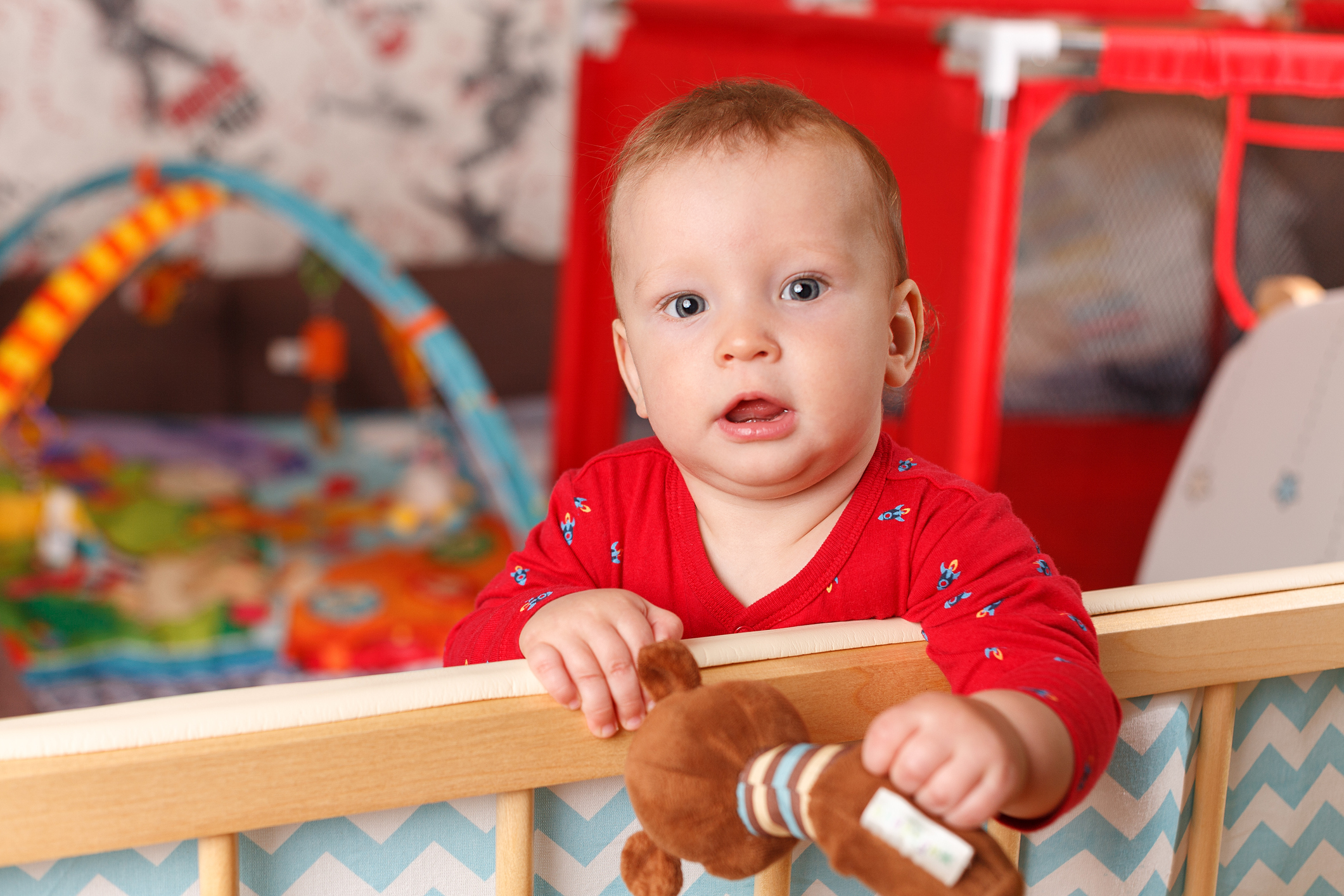Oh for the love of all that is holy. Why won’t this child go to sleep? If you find yourself asking that question far more often than not lately, you may have a problem. If your little one isn’t going down easily at all for bedtime, chances are you are staying up later than normal and not getting much sleep, either.
Back and forth you go and the whole house is crankier than ever. If your child is fighting you at bedtime and won’t stay down, there are some simple things to try and see what happens. It could be the slightest change in something and it’s throwing your baby all off. Let’s see what it could be and then let’s explore solutions to children’s sleeping behaviors.

Check the room
Did you change anything in the room lately? Does it feel differently to you? Your child has a heightened awareness and the smallest shift in something can send them into a complete meltdown.
- Check the temperature
If you changed the temperature recently, your child may be sensitive to that. If they were used to a certain temperature, even moving it a few degrees could be enough to freak them out. Put it back.
- Check the lights and fan
Do you keep forgetting to close the curtains? Do you leave the nightlight on after baby’s last feeding before bed when you didn’t used to? Check that you left the fan on, so your baby has white noise to lull them to sleep.
- Check the smell
Does is smell weird in the room? Did you switch something out? Did you leave an old cup of coffee sitting somewhere and now its moldy smell is grossing your baby out? Check the room for anything that smells off.
Check your routine
This might be the more important thing to look at. If you had any deviations from your routine, you could have messed with your baby’s head.
- Child could be too tired
If you had a few days where the schedules were crazy and you got home later than usual, then your child’s sleep schedule could be all messed up. Your child wants routine. They crave it. It’s like a safety blanket for a a little one. If your routine gets off its groove, you will have to start all over again to establish a new one. It may not take as long as the first time you established it, but you need to let your child know it’s back.
- Child isn’t tired yet
Now, the opposite. Are you trying to put baby down earlier than usual because your schedule is different? Your child will not go down without a fight until they are ready to go down. Trying to make them go to sleep earlier than normal and when they just aren’t ready will only leave you both crying for someone else.
- Separation anxiety
Did you and your partner have to switch schedules? If a different person than normal is putting the baby to bed, this could also sound off the alarms. Your child could be wondering why mom isn’t the one putting them to bed. Again, your child loves the comfort of routine. If you know a switch in schedules will happen beforehand, gradually introduce the switch so it’s not so hard on your kid.

What else did you do?
Those are the main reasons why your little one does not want to go to bed. But we could be overlooking a few, so let’s double check that.
- Child’s nap schedule is different
Uh oh. Did you let baby sleep longer than normal because you wanted to see what hot coffee was like again? Well now you’re going to pay for that. If you move around your child’s naps or let them sleep longer and later than usual, then they’re not going to want to go to bed at the normal time. It’s like when you fall asleep on the couch after dinner and then wake up at 10 p.m. and can’t go back to bed until the sun comes up.
- Child is sick
Let’s hope this one isn’t the case, but it could be your child is sick. Check for a fever or any weird marks or rashes on their body. Check for cuts or anything that could be hurting them. Check their fat rolls, all of them, to make sure they didn’t get a rash or yeast infection in those cute chins.
If you have checked every nook and cranny and you don’t see a reason why they are still fighting you, you could always make a doctor’s appointment to make sure nothing’s wrong. Better safe than sorry. Your pediatrician can rule anything else out and give you some reassurance.
Unfortunately, sometimes children don’t want to go to bed. Sleep regression is common around 4 months, 8 months, and 18 months, and 24 months where it’s like having a newborn again. It’ll pass eventually. Try doing a night feeding in the dark and see if that helps your baby become drowsy. If nothing else works, then the good old tried and true rocking chair is going to be your best friend. Nothing beats being rocked back to sleep in mom’s arms.


